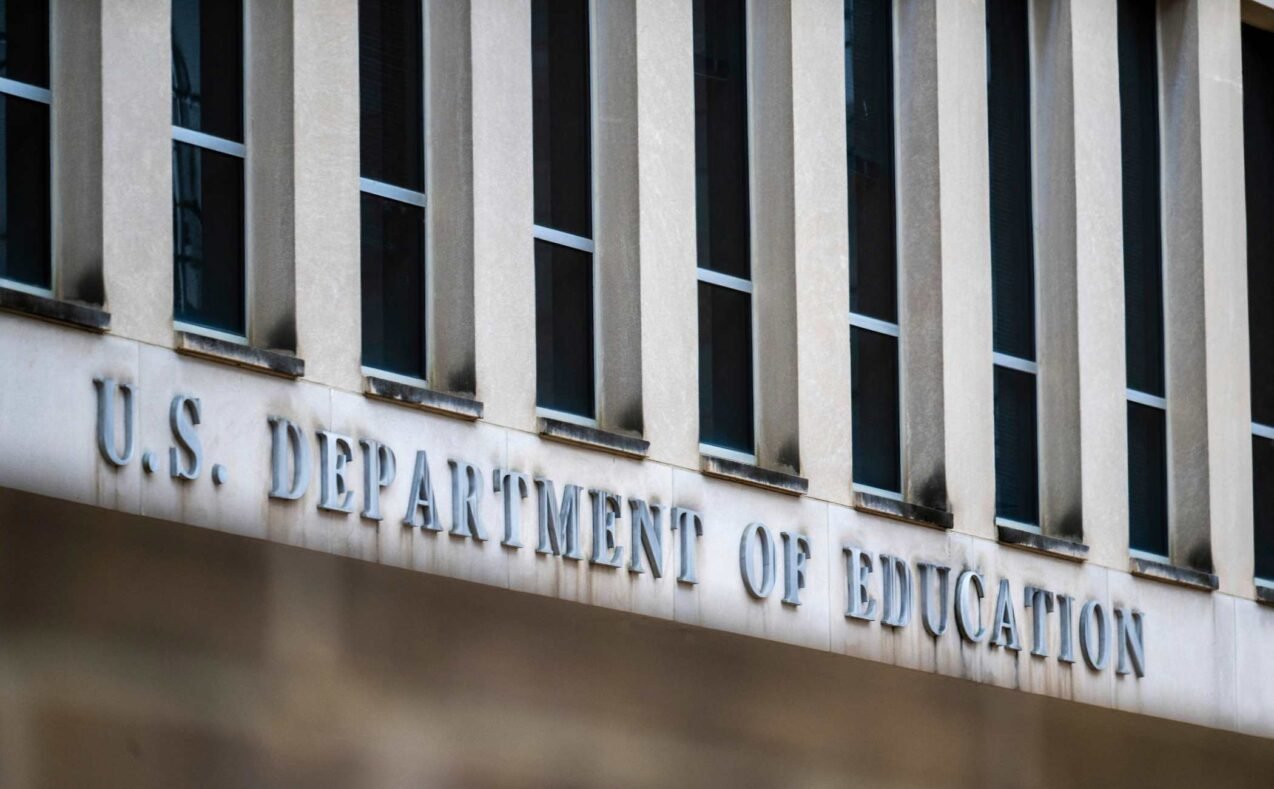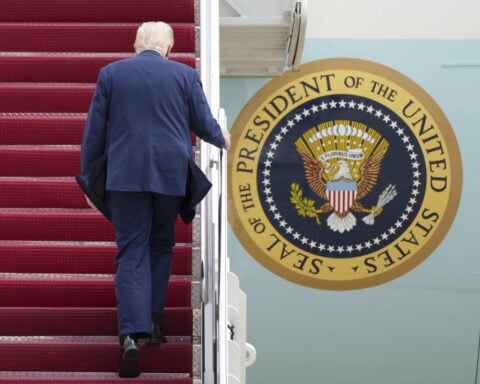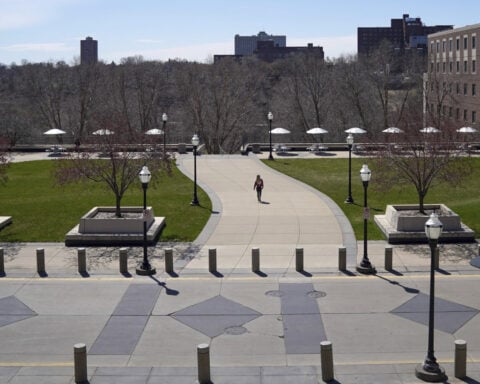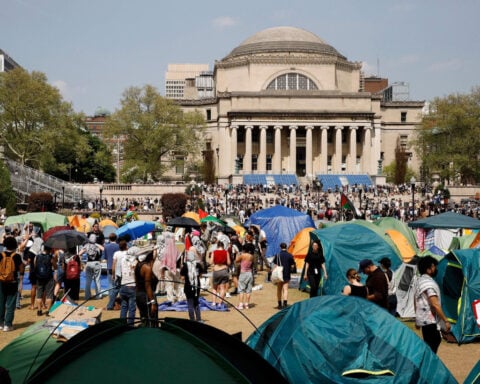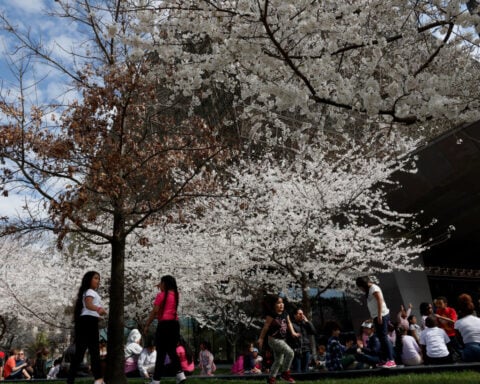President Donald Trump's recent executive order to dismantle the Department of Education has elicited a significant concern among educators and students, particularly those from low-income backgrounds and with disabilities. The initiative aims to decentralize educational oversight, transferring authority to individual states.
The Department of Education, established in 1979, administers federal funding programs such as Pell Grants for low-income college students and Title I funds for K-12 schools serving disadvantaged communities. It also enforces civil rights laws to ensure equitable access to education.
The act creating the department described its mission, in part, as: "To strengthen the Federal commitment to ensuring access to equal educational opportunity for every individual."
Secretary of Education Linda McMahon assured continued support to low-income and special needs students, "Closing the Department does not mean cutting off funds from those who depend on them—we will continue to support K-12 students, students with special needs, college student borrowers, and others who rely on essential programs. We're going to follow the law and eliminate the bureaucracy responsibly by working through Congress to ensure a lawful and orderly transition."
Extending support to Trump's executive order dismantling the Department of Education, Indiana Gov. Mike Braun said, "I support President Trump's bold action to return education to where it belongs and to put parents in the driver's seat of their children's education,"
According to the Department of Education, the elementary and secondary programs annually serve nearly 18,200 school districts, and over 50 million students, attending roughly 98,000 public and 32,000 private schools. Department programs also provide grant, loan, and work-study assistance to more than 12 million postsecondary students.
Weadé James, senior director of K-12 education policy at the Center for American Progress, a think tank that supports racial equity policies and greater funding for public schools, stated, "Gutting the agency that is charged to ensure equal access to education for every child is only going to create an underclass of students."
Critics argue dismantling the U.S. Department of Education could lead to inconsistencies in educational quality and access across states. States may adopt varying standards and policies without federal oversight, potentially exacerbating existing disparities. Similarly, eSchool News highlights concerns that eliminating the department might result in inconsistent college admissions processes, as states could implement differing graduation requirements and assessments.
The recent executive order to dismantle the U.S. Department of Education has sparked significant concern among students who rely on federal support. Ella Hwang, a public high school student and daughter of a public school teacher, expressed her apprehension to the Los Angeles Times: "I worry that we will lose crucial resources, where we will be forced to deal with larger class sizes, fewer support programs, and fewer resources for low-income students and students with disabilities."
These sentiments reflect a broader anxiety among students who depend on federal programs for equitable educational opportunities. Hwang also highlighted the potential impact on her peers with learning disabilities: "My friend is able to do well at school because she has access to accommodations for her learning disability. However, with federal cuts and the dismantling of the Department of Education, all of her resources can go away in an instant."
Educators and advocates have voiced concerns regarding the potential impact on vulnerable student populations. "Dismantling the Department of Education is a direct attack on students' rights, particularly those with disabilities," says Jacqueline Rodriguez, CEO of National Center for Learning Disabilities (NCLD). She emphasized such actions could undermine decades of progress toward inclusive education, "For decades, families have fought for high-quality, inclusive education, and we will not allow this administration to erase that progress or return to an era of exclusion and inequality."
Regarding the future of federal financial aid programs, notably Pell Grants and Title I funding, Trump has stated essential functions such as Pell Grants and Title I funding will be preserved and transferred to other agencies. He emphasized, "But the department's useful functions, such as they're in charge of them, Pell Grants, Title I funding, resources for children with disabilities and special needs, will be preserved, fully preserved."
Despite these assurances, education experts express apprehension about the potential impact of dismantling the department. Michael Dannenberg, vice president of strategic initiatives at Education Reform Now, remarked, "The elimination of Pell Grants would be devastating for lower-income families and the colleges they're attending."
The Department of Education allocates approximately $100 billion in student loans and over $30 billion in Pell Grants annually to more than six million low-income students. Transferring these responsibilities to other agencies could lead to administrative challenges and potential disruptions in aid distribution.
Congressional approval would be necessary to completely abolish the Department of Education, and Trump hopes Democrats will vote in favor. "I hope they're going to be voting for it," he said of congressional Democrats, "because ultimately it may come before them."
The Senate needs 60 votes to pass most legislation, which means that all Republicans and seven Democrats must vote in favor of it.

 Trump has begun another trade war. Here's a timeline of how we got here
Trump has begun another trade war. Here's a timeline of how we got here
 Canada's leader laments lost friendship with US in town that sheltered stranded Americans after 9/11
Canada's leader laments lost friendship with US in town that sheltered stranded Americans after 9/11
 Chinese EV giant BYD's fourth-quarter profit leaps 73%
Chinese EV giant BYD's fourth-quarter profit leaps 73%
 You're an American in another land? Prepare to talk about the why and how of Trump 2.0
You're an American in another land? Prepare to talk about the why and how of Trump 2.0
 Chalk talk: Star power, top teams and No. 5 seeds headline the women's March Madness Sweet 16
Chalk talk: Star power, top teams and No. 5 seeds headline the women's March Madness Sweet 16
 Purdue returns to Sweet 16 with 76-62 win over McNeese in March Madness
Purdue returns to Sweet 16 with 76-62 win over McNeese in March Madness
